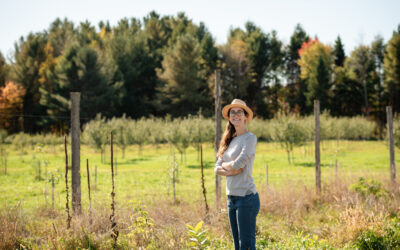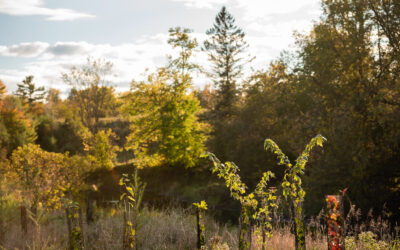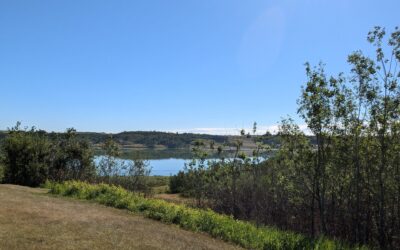ALUS participants Mike and Evelyn Lafortune raise Dexter cattle while improving the environment in North Milton, Prince Edward Island.
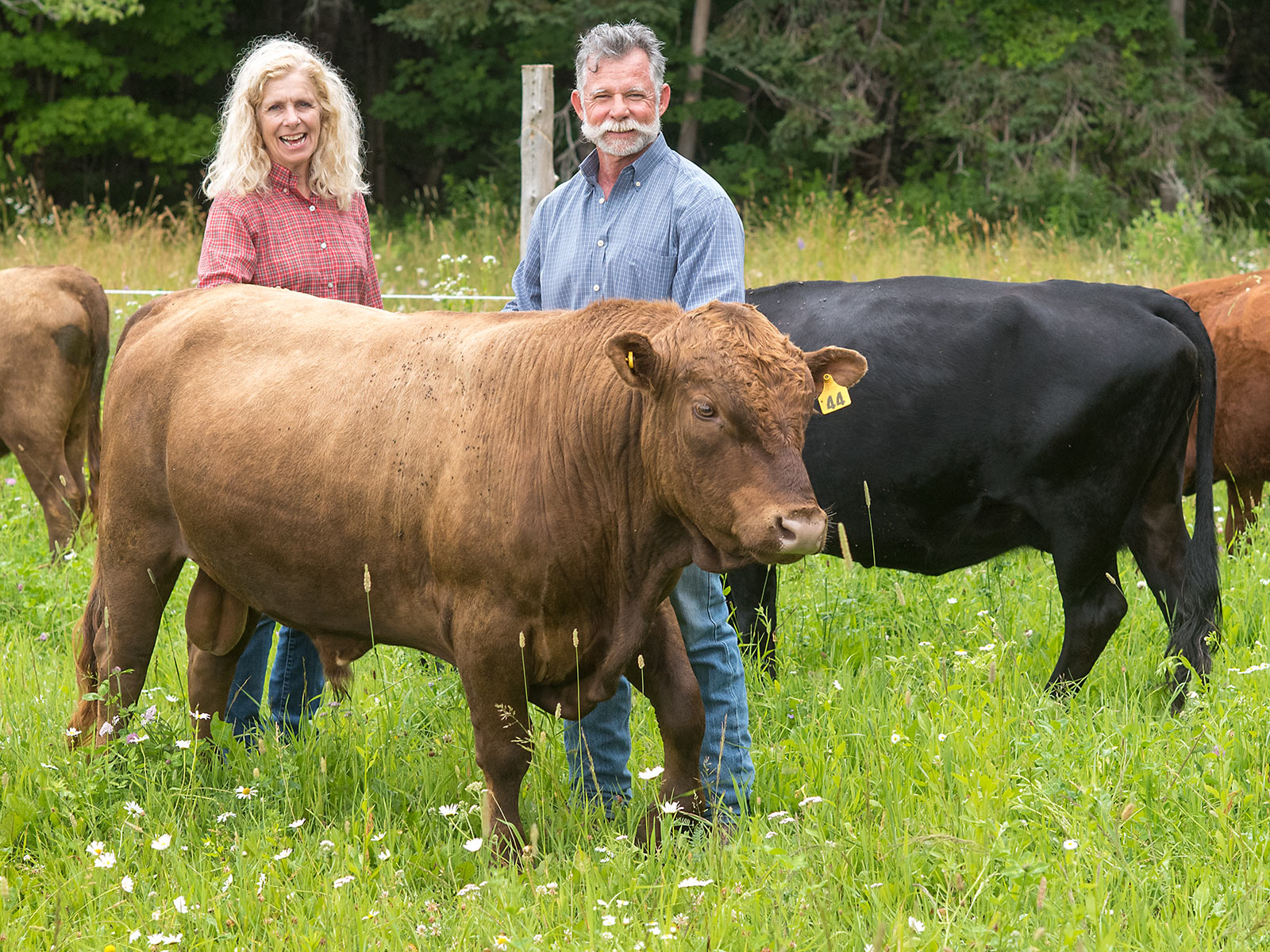
ALUS participants Mike and Evelyn Lafortune raise Dexter cattle while improving the environment in North Milton, Prince Edward Island. They manage several ALUS projects to produce cleaner air and cleaner water on their land, and participate in PEI ALUS’s new delayed-hay-cut initiative to protect grassland birds and produce more biodiversity.
ALUS participants Mike and Evelyn Lafortune run the only certified organic beef farm on Prince Edward Island. P.E.I. Originally from Ontario, they moved to PEI and started the Dexter Cattle Company on a 225-acre farm in 2014.
The Lafortunes manage several ALUS projects on their land, and participate in ALUS PEI’s new delayed-hay-cut initiative as well.
Dexter is a heritage cattle breed from Ireland that is known for its calm, gentle nature and hardiness. Standing around a meter tall, these animals are 30 percent smaller than conventional breeds. The breed is well suited to an organic farming system as they have a robust immune system and do not require vaccinations.
They also require no grain in their diet, which allows Dexter Cattle Company to feed and finish them entirely on grass: The herd graze in the farm’s pastures during the warm season, while the Lafortunes bale enough hay to feed their cattle over the winter months.
However, the pastures and fields of this North Milton farm are located at the headwaters of Crooked Creek, a major tributary to the Wheatley River.
That’s one reason why the ALUS PEI program supports more than 6,000 feet of livestock fencing and alternate watering systems on the Lafortunes’ land.
These ALUS projects prevent livestock from wading directly into the stream to drink, thus helping to improve water quality and wildlife habitat on the farm, and producing more biodiversity and cleaner water for everyone downstream.
The Lafortunes have also devoted 30 acres of their land to protecting grassland birds through ALUS. By delaying their first hay cut until after July 15, birds can successfully raise their young until they are old enough to fledge the nest.
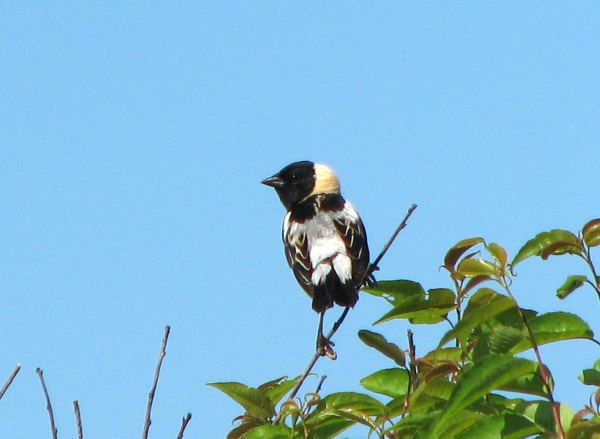
The Lafortunes devote 30 acres of their land to protecting grassland birds through ALUS, by delaying their first hay cut until after July 15. “It’s good to know this small change is enough to produce a new generation of birds every year.” – ALUS participant Mike LaFortune, Dexter Cattle Company, PEI. (Photo: Donna Giberson)
Of particular concern is the bobolink, classified as threatened and protected under the federal Species at Risk Act. Click here for more information on this initiative.
“I heard bobolink calls in my fields early in the season, so I was happy to delay my first hay cut,” said Mike. “It’s good to know this small change is enough to produce a new generation of birds every year.”
These simple efforts are already paying off for biodiversity. The ALUS PEI program asked the Island Nature Trust, a non-governmental charity dedicated to land conservation in Prince Edward Island, to assess the presence of bobolink in hay fields enrolled in the delayed hay cut initiative. This audit confirmed the presence of at least six bobolinks on site at the Dexter Cattle Company alone.
In addition to their ALUS projects, the Dexter Cattle Company also employs many regenerative agriculture practices, such as rotational grazing, no-till seeding of crops, and silvo-pasturing, or combining woodlands and cattle grazing in a mutually beneficial way. These practices have the added benefits of cutting costs and sequestering carbon on the farm.
The couple manage the farm themselves, with some occasional help from their extended family, and so far have not been able to keep up with consumer demand for Dexter beef.
In September 2018, Mike and Evelyn kindly invited ALUS staff to visit their farm. One of the more memorable quips during the tour was Mike’s tongue-in-cheek description of their biggest challenge:
“We have three breeding bulls for a herd of 100,” he said, “so we work hard to ensure there’s no in-breeding… We spend all winter being the Match.com of cows!” For more on the ALUS tour, click here.

The PEI ALUS program supports more than 6,000 feet of livestock fencing and alternate watering systems on the Lafortunes’ farm, located at the headwaters of Crooked Creek, a major tributary to the Wheatley River. These ALUS projects prevent livestock from wading directly into the stream to drink, thus helping to improve water quality and wildlife habitat on the farm, and producing more biodiversity and cleaner water for everyone downstream.

